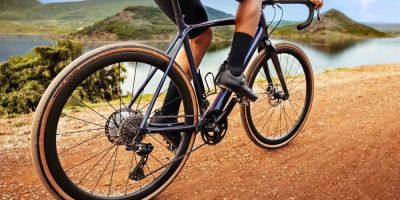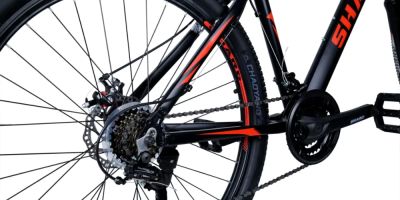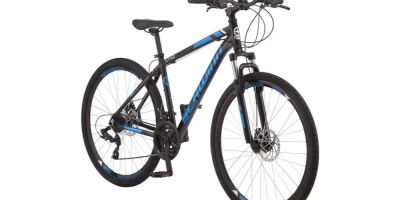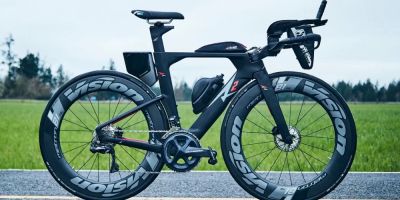Choosing the Right Kids Bike with Hand Brakes: A Parent's Guide
When it comes to buying a bike for your child, there are a lot of factors to consider. As a parent, one of the most important features to look for in a kids' bike is safety. Hand brakes are a significant element that many parents prefer for their children’s bikes, especially as they help provide better control and safety. But what should you know before making a purchase? Let's explore the benefits, considerations, and top picks for kids' bikes with hand brakes.
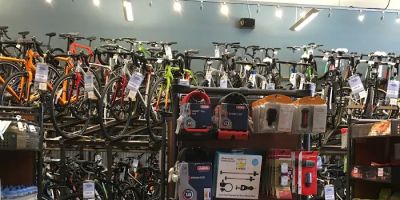
Mike's Bikes of Berkeley
1824 University Ave, Berkeley, CA 94703, USA
1. Why Choose a Kids Bike with Hand Brakes?
Hand brakes are a key feature when it comes to safety and control on a bicycle. Unlike coaster brakes, which require pedaling backward to stop, hand brakes are more similar to those on adult bikes, providing kids with a more familiar and intuitive braking system. Hand brakes give children more control over their speed and can be safer, especially when navigating downhill or in traffic.
Moreover, hand brakes can prepare kids for riding larger bikes as they grow older. They are essential in teaching children proper braking techniques that they will use as they move on to adult bikes. The transition to larger bikes will feel more natural and less daunting if they’ve already mastered the skill of using hand brakes.

Mike's Bikes of Berkeley
1824 University Ave, Berkeley, CA 94703, USA
2. Age Appropriateness and Bike Size
One of the first things to consider when buying a kids' bike with hand brakes is the size. Bikes are usually sized by the diameter of their wheels, typically ranging from 12 inches to 24 inches for younger children. The ideal size will depend on your child’s height and age. For example, a 12-inch bike is generally suitable for children around 2 to 4 years old, while a 20-inch bike is perfect for those between 6 and 9 years old.
Make sure the bike fits your child properly. They should be able to touch the ground with their feet when sitting on the seat, allowing them to stop themselves safely if needed. Additionally, ensure that they can comfortably reach the hand brakes. Some bikes come with adjustable brake levers to accommodate smaller hands, which is a great feature for growing kids.
3. Features to Look for in a Kids Bike with Hand Brakes
Aside from hand brakes, there are a few other features to look for when purchasing a kids' bike. These features can enhance both the safety and enjoyment of your child’s biking experience:
- Durability: Kids can be rough on bikes, so durability is key. Look for bikes made from strong materials like steel or aluminum, as these will last longer and withstand daily use.
- Comfort: A comfortable seat and properly sized handlebars are essential. Adjustable seats can help ensure that your child’s bike grows with them, offering longer-term use.
- Safety Features: Reflectors, a bell, and even training wheels (for beginners) are great additions that can increase visibility and help ensure a safe riding experience.
- Design: While not a safety feature, a bike with a fun design can encourage kids to ride more often. Choose a bike with colors or themes that appeal to your child’s interests.
4. Best Brands for Kids Bikes with Hand Brakes
There are several reputable brands that specialize in making high-quality kids' bikes with hand brakes. Some of the best-known brands include:
- Schwinn: A well-established name in cycling, Schwinn offers a variety of bikes with hand brakes in different sizes for children of all ages.
- RoyalBaby: This brand is known for making beginner-friendly bikes that come with hand brakes, perfect for children just learning how to ride.
- Woom: Woom specializes in lightweight bikes that are designed specifically for children, offering easy-to-use hand brakes and excellent overall quality.
- Raleigh: Known for their durability, Raleigh bikes are a great option for families looking for a high-quality bike with reliable hand brakes.
5. Transitioning from Coaster Brakes to Hand Brakes
If your child has been using a bike with coaster brakes, transitioning to hand brakes can take a bit of practice. It’s important to teach them how to properly use the hand brakes to avoid sudden stops or loss of control.
Start in a safe, controlled environment like a flat, open parking lot or a park with soft grass. Help your child practice squeezing the brake levers gently to slow down, and explain the importance of applying both brakes evenly for balance. With time and practice, they will gain confidence in using hand brakes effectively.
6. Maintaining a Kids Bike with Hand Brakes
Regular maintenance is crucial to keep your child’s bike in top shape, especially when it comes to the hand brakes. Ensure the brakes are functioning properly by checking for any loose cables or parts. If the brakes feel too loose or too tight, they may need adjustment. Make sure the tires are properly inflated and check for any wear and tear on the chain or frame.
If you're not sure how to adjust the brakes yourself, consider taking the bike to a local bike shop for a professional tune-up. A little maintenance goes a long way in ensuring your child's bike is safe and enjoyable to ride.
7. Conclusion: Safety and Fun Combined
Choosing the right kids' bike with hand brakes is not just about convenience; it’s about ensuring your child’s safety and giving them the best experience while riding. By considering factors like size, features, and the transition to hand brakes, you can ensure that your child enjoys their new bike while staying safe. With the right bike and proper training, your child will be ready to conquer the roads and trails with confidence!


